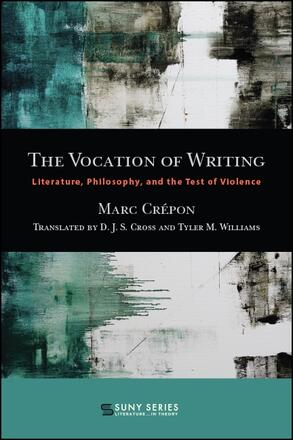
The Vocation of Writing
Literature, Philosophy, and the Test of Violence
Alternative formats available from:
Explores how violence structures language and the writing of literature and philosophy.
Description
Within the violence our societies must confront today exists a dimension proper to language. Anyone who has been through the educational system, for example, recognizes how language not only shapes and models us, but also imposes itself upon us. During the twentieth century, this system revealed how language can condemn one to a certain death. In The Vocation of Writing, philosopher Marc Crépon explores this dimension of language, convinced that the node of all violence pertains first to language and how we make use of it. Crépon focuses on Kafka, Levinas, Singer, and Derrida, not only because each rose against commandeering language in order to warn against the next massacres, but also because their work affirms the vocation of writing—that which makes literature and philosophy the final weapon for unmasking the violence and hatred that language bears at its heart. To affirm the vocation of writing is to turn language against itself, to defuse its murderous potentialities by opening it toward exchange, responsibility, and humanity when the latter fixes the other and the world as its goals.
D. J. S. Cross is a FONDECYT Postdoctoral Fellow at the Instituto de Filosofía at the Pontificia Universidad Católica de Chile. Tyler M. Williams is Assistant Professor of Humanities at Midwestern State University.